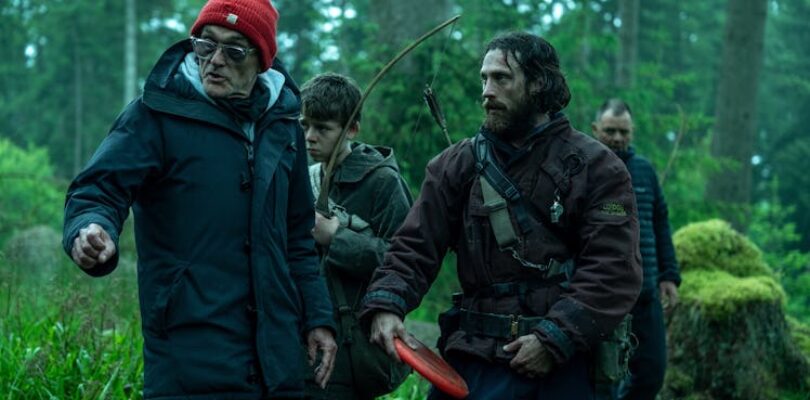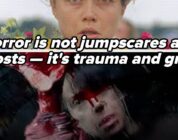Originally, the 28 Days Later franchise had ended on an alarmingly bleak note. In the sequel helmed by Juan Carlos Fresnadillo, the Rage Virus — which had been previously contained to the U.K., with all the Infected slowly dying of starvation — a new strain manages to activate, spreading beyond the London refugee camp where NATO forces were trying to help rebuild the country. The final shot of 28 Weeks Later shows a gang of Infected zombies racing through Paris tunnels and running at the Eiffel Tower.
For 18 years, that was the ending we had for the 28 Days Later franchise: the Rage Virus had spread to Continental Europe and threatened to take over the entire world. That is, until now. In 28 Years Later, the Rage Virus was contained back to the British mainland. But that doesn’t mean that the ending of 28 Weeks Later no longer happened, nor that the sequel, which 28 Days Later director Danny Boyle only helmed the opening sequence with Robert Carlyle, is no longer canon. Boyle, now back to direct 28 Years Later with 28 Days screenwriter Alex Garland, confirms to Inverse that the events of 28 Weeks Later did in fact happen, they just decided to go in a different direction than its ending.
“Obviously, what you could have done is you could have followed the direction of 28 Weeks Later, which is to take the virus into Europe,” Boyle tells Inverse. “But… what had happened in the other movies and TV series [is] that expansion had happened in that way. And what we should do is contract back.”
Surprising Inspirations
Danny Boyle directing Aaron Taylor-Johnson and Alfie Williams on the set of 28 Years Later.
Sony Pictures
In the years since 28 Days Later revitalized the zombie genre, zombie movies and shows have become all, ahem, rage. And like Boyle says, most of these franchises — from Zombieland to The Last of Us — show an entire world rendered a post-apocalyptic wasteland thanks to widespread zombie infection. So Boyle and Garland, wanting to go against the grain and make a callback to the original, decided to set 28 Years Later entirely on the British mainland.
“So we introduced the card at the beginning that said, ‘Somehow the French had managed to drive the virus back across the channel to its origin in the British mainland,’” Boyle reveals.
The saturation of zombie franchises in today’s pop culture landscape isn’t the only thing that inspired Boyle and Garland to contain the virus to mainland Britain. The two other key influences were political: Brexit and COVID.
“Something that had happened in Britain in the time being since the first film, which is that we’d voted for Brexit, which was to leave Europe, to choose a kind of isolation away from our European partners,” Boyle says. “So there’s a kind of political inference you can draw, you can lean into if you want to as you watch the film: as well as the obvious one of the COVID experience, which also happened to everybody between the first film and this film.”
Is 28 Weeks Later Canon?
The opening scene of 28 Weeks Later, which Boyle directed.
20th Century Studios
The opening title card manages to do away with doubts that 28 Weeks Later was canon — something that Garland also disputed in an interview earlier this year with Empire Magazine. But that’s not the only reference 28 Years Later makes to the divisive sequel: early in the film, a montage of archival clips and clips from the film also includes a shot from 28 Weeks Later. It’s a blink-and-you’ll-miss-it shot of the U.S. soldiers shooting Infected and civilians alike, as the virus starts its fast spread through the refugee camp.
Through this key scene, Boyle alludes to how the virus might have been contained and pushed back from Continental Europe: “They’d isolated and quarantined and patrolled to keep the virus in the island until, as they think, it would burn out,” Boyle says. But, he teases, “it evolved.”
“Nature finds a way to survive. That felt like a really useful ingredient,” Boyle says.





